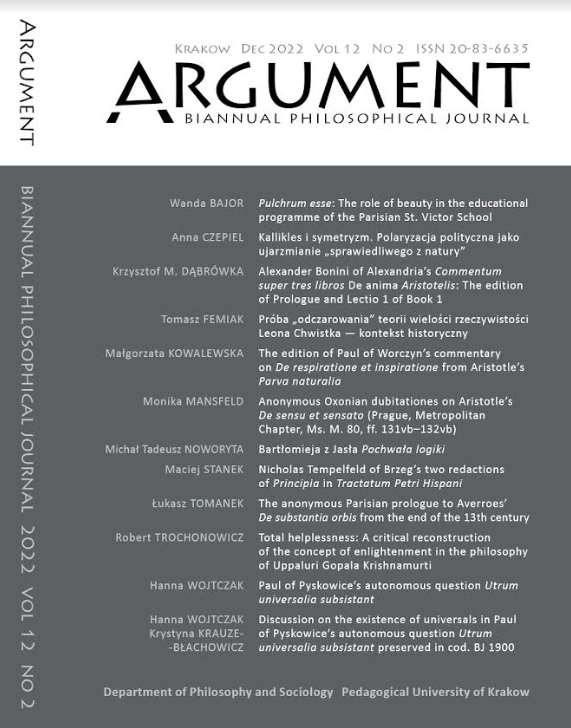Kallikles i symetryzm. Polaryzacja polityczna jako ujarzmianie „sprawiedliwego z natury”∗
DOI:
https://doi.org/10.24917/20841043.12.2.10Keywords:
democracy, individualism, polarisation, political participation, romanticismAbstract
Callicles and symmetrism. Political polarisation as taming “the fair by nature”: The article aims at describing affirmatively a symmetrist — that is someone who transcends the usual polarized scheme of political debate in Poland — as a contemporary Callicles from Plato’s dialogue Gorgias and as a heir of the creative romantic individualism, the tradition which enjoins the love of the self with the love and activity directed at the nation‑state. Like Callicles, the symmetrist does not think he/she needs to obtain any permission to speak from one of the polarized tribes — from “the many”. Instead, the symmetrist, as if nothing has happened, takes his/her right to speak “as Heracles drove off Geryon’s cattle on the ground that this is what’s just by nature”. In the second half of the article, the author — by means of an analysis of Karl Popper’s and Józef Tischner’s works — indicates that both sides of the Polish political and philosophical polarization (Catholic conservatism and tolerantionist, cosmopolitan liberalism) treat such a romantic participant as their worst enemy. In this context, the figure of a liberal skeptic becomes identical with the figure of the priest from Adam Mickiewicz’s fourth part of Forefathers’ Eve, who preaches Gustaw — the young man with a restless heart, situated between lightness and darkness — by suggesting the Church’s rigidity as the only recipe for life: “Do you know the Gospel?”. Then Gustaw responds rhetorically: “Do you know misfortune?”. This is when he is speaking about his unfulfilled love for a girl, but not only. In the next (despite the numeration), third part of Forefathers’ Eve we know that the protagonist also seeks to repair the political community, to change it into a fortunate song.


